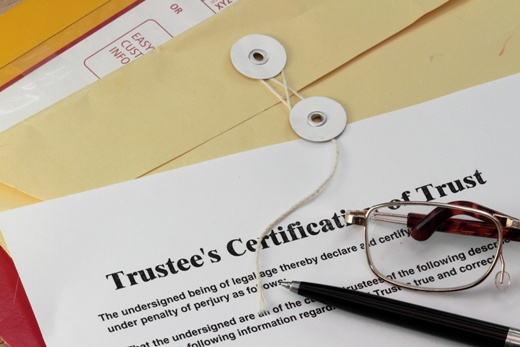The passing of a loved one often requires us to step into unfamiliar roles. If you have been named as the successor trustee of a living trust, you must understand that trust administration and estate administration are very different animals. Trusts often contain complicated language and legally-binding duties, and making a small error can result in large financial consequences for the trustee.
How to Avoid Legal Problems in Florida Trust Administration
If you’ve never served as a trustee before, you should not attempt to do it on your own. Florida law allows successor trustees to hire legal counsel to represent their interests, and for good reason. A Florida estate planning attorney ensures that all the proper steps are followed to distribute trust property while protecting you from any lawsuits brought by heirs.
As your attorney, we can help identify and prevent common mistakes, including:
- Failure to contact the right agencies and authorities. You have to interact with many different state, city, and county entities in order to carry out your legal duties as the trustee. For example, you are legally responsible for ordering multiple certified copies of the decedent’s death certificate, depositing the original Last Will and Testament with the probate court, and filing a Notice of Trust to alert creditors and relatives of the decedent’s death. We can ensure these actions are taken promptly, and we will stay in contact with agencies to keep you informed of their progress.
- Failure to pay trust bills. Any physical assets titled in the trust’s name may still have outstanding payments that need to be met. For example, if a house is held by the trust, you will be responsible for paying the mortgage, property taxes, insurance, utility bills, and other expenses using funds from the trust.
- Failing to inventory all assets. It can be difficult to tell which assets are part of the trust, especially if the asset only transfers into the trust after the settlor’s death. Any financial accounts (such as checking and savings accounts, life insurance policies, IRAs, or 401ks) that list the trust as the beneficiary in a transfer upon death (TOD) designation must be accounted for in the trust inventory.
- Accidentally bypassing probate. One of the biggest benefits of a trust is that any assets held in the trust will avoid probate. However, this only applies to trusts that have been properly funded. Assets that were not properly titled in the name of the trust may require probate administration, either to place the asset in the trust or to transfer the asset to its rightful beneficiary outside of the trust.
- Misunderstanding inheritance matters. Even if the terms of who-gets-what are fairly straightforward, beneficiaries have the right to refuse some or all of their inheritances. For instance, a beneficiary may disclaim an interest in their share of trust property for personal reasons or to maintain eligibility for government benefits. What happens to their share of the property? Does it get split equally among the remaining heirs or pass to the next beneficiary in line? Our attorneys can examine the law and the settlor’s wishes to ensure that the property does not pass into the wrong hands.
- Miscalculating compensation. Trustees are entitled to reasonable compensation for their efforts in administering the trust. Under Florida law, a trustee’s fees are based on a percentage of the value of trust assets but also allow additional payment for the complexity of the case. In order to avoid claims of mismanagement, you will need to record any time spent working on trust duties, as well as any issues that required your emergency intervention.
- Accounting for missing assets. Some settlors will transfer assets out of the trust during their lifetimes, causing problems for successor trustees. Beneficiaries may be hurt or confused as to where these assets have gone, and you may be accused of mismanagement for something that happened before your term as trustee.
Florida trust administration takes a lot of time and effort. As your Personal Family Lawyer®, we guide you through the trust administration process and protect you from costly missteps, ensuring your duties are met to the letter of the law. Give Yolofsky Law a call today to find out how we can help.

